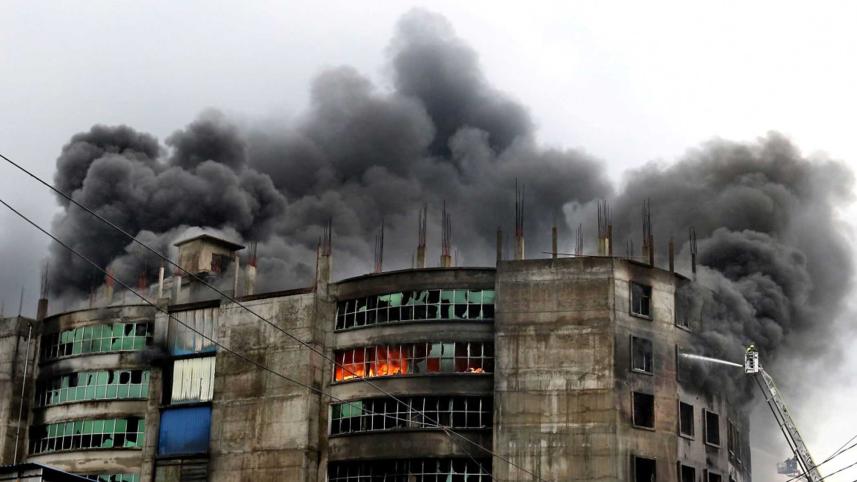Should workers’ lives come so cheap?

As per a report published in The Daily Star on Tuesday, Hashem Foods Ltd has bought legal indemnity by handing out a meagre Tk 2 lakh to each of the families of the victims killed in the devastating fire that engulfed its factory in Rupganj, Narayanganj on July 8. While paying said amount, these families were made to give an undertaking, which absolves the factory owners of all monetary liability for the 54 people who were killed in the fire.
We have two points to emphasise here.
Firstly, we believe that Hashem Foods' action is a mean ploy to circumvent the law and avoid the consequences—both penal and legal—which the culpability of their callous disregard for workers' safety makes them liable to. It can be mentioned that a writ petition is pending with the High Court, filed on July 11 by four organisations seeking Tk 5 crore in compensation for each of the victims' families.
As we have said in these very columns before, the fire was not an accident but a case of pure and simple murder, and the factory owners cannot be allowed to get away so cheaply. We are not privy to the findings of the report of the committee set up by the Ministry of Labour. But our views have been substantiated by the citizens' committee which is unanimous about the gross negligence and callous disregard for workers'safety displayed by the factory owners. Not only is the money offered a pittance, the manner in which the acquiescence of the victims' families has been obtained smacks of deceit. Most of them cannot read and did not know what they were signing on. So whatever agreement has been made by Hashem Foods is ultra vires—it has no legal basis.
Secondly, the agreement should not absolve the owners of the penal consequences for their culpability in the 54 deaths. In this regard, we would hope that all the necessary investigations are completed quickly, and the case is taken to court as soon as possible and the guilty parties are punished. Industrial accidents have continued to occur mainly because those responsible for the accidents have either not been called to account for their acts of omissions or commissions, or have managed to escape through legal loopholes. Unless examples are made of all those in the chain, apart from the owners, who are responsible for overseeing that safety measures are complied with—and that includes several government agencies, too—accidents will continue to occur and poor workers will continue to die.



 For all latest news, follow The Daily Star's Google News channel.
For all latest news, follow The Daily Star's Google News channel.
Comments